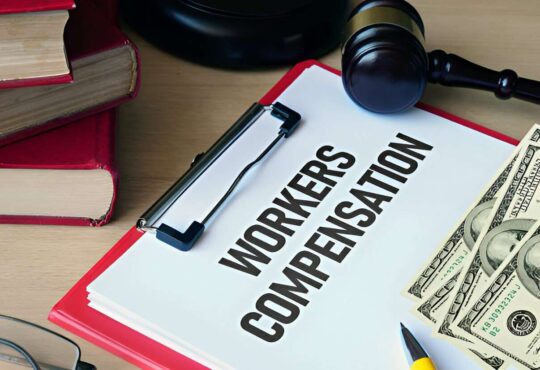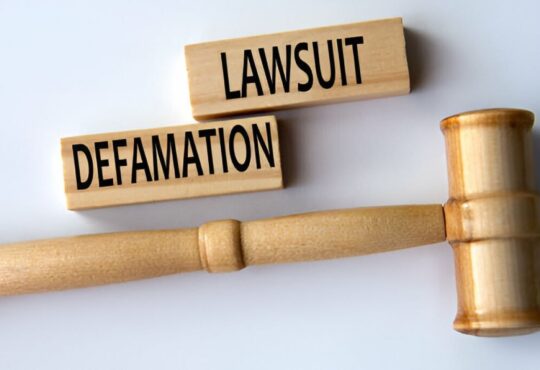
Landlord vs. Tenant Rights: What the Law Says About Evictions
Evictions can be a stressful and complex process for both landlords and tenants. While landlords have the right to reclaim their property under certain conditions, tenants are also protected by laws that prevent unfair evictions. Knowing the legal requirements ensures that both parties follow the proper process.
Understanding eviction laws can help tenants defend themselves against wrongful removal and assist landlords in handling evictions legally. Whether you’re a renter or a property owner, knowing your rights can prevent disputes and legal complications. Here’s what you need to know about eviction laws.
Contents
Legal Grounds for Eviction
Landlords cannot evict tenants without a valid reason recognized by law. Common grounds for eviction include nonpayment of rent, lease violations, property damage, or illegal activity on the premises. A landlord must provide proper notice before proceeding with legal action.
However, tenants have the right to challenge evictions if the claims are unfounded. If a landlord attempts to remove a tenant without following legal procedures, the eviction may be deemed unlawful. Both parties should document all lease agreements and communications to ensure compliance with rental laws.
Required Notice Before Eviction
Landlords must provide tenants with written notice before filing an eviction lawsuit. The notice period varies by jurisdiction and the reason for eviction. For example, a “pay or quit” notice may give a tenant a few days to settle unpaid rent before further action is taken.
In cases of lease violations, landlords may issue a “cure or quit” notice, giving tenants time to fix the violation before facing eviction. If a tenant refuses to leave after receiving proper notice, the landlord must file an eviction case in court. Skipping this step can lead to legal consequences for the landlord.
Tenant Defenses Against Eviction
Tenants have legal rights that allow them to challenge an eviction if they believe it is unjust. Common defenses include proving that the landlord failed to maintain the property, engaged in retaliation, or did not follow legal notice procedures. Tenants can also argue that they have paid rent in full or remedied any lease violations.
If a tenant presents a valid defense, the court may dismiss the eviction case or provide additional time for the tenant to resolve the issue. Tenants should gather evidence such as rent receipts, maintenance requests, and written communications with the landlord. Seeking legal assistance can also help tenants fight an unfair eviction.
Unlawful Evictions and Tenant Protections
Landlords cannot remove tenants by force, shut off utilities, or change locks without a court order. These actions are considered illegal “self-help” evictions and can result in legal penalties. Tenants have the right to remain in the property until the court issues an official eviction order.
If a landlord engages in unlawful eviction practices, tenants can file a lawsuit to recover damages or seek reinstatement. Many jurisdictions impose fines and penalties on landlords who violate eviction laws. Understanding these protections can help tenants stand up against wrongful eviction attempts.
Court Procedures and Enforcement of Evictions
If a tenant refuses to vacate after receiving an eviction order, landlords must request law enforcement to carry out the removal. The eviction process involves a court hearing where both parties can present their arguments. A judge will then determine whether the eviction is lawful.
If the court rules in favor of the landlord, the tenant is given a deadline to vacate voluntarily. If the tenant does not comply, local authorities may enforce the eviction. Landlords must follow the proper legal steps to avoid unnecessary delays or legal disputes.
Tenant Rights After Eviction
Even after an eviction, tenants may have rights depending on the circumstances. Some jurisdictions offer relocation assistance or temporary housing programs for displaced tenants. Additionally, tenants may have the right to retrieve personal belongings left behind after the eviction.
An eviction record can negatively impact a tenant’s ability to rent in the future. Seeking legal guidance and negotiating with landlords before eviction proceedings can help minimize long-term consequences. Understanding tenant rights post-eviction can make the transition smoother.
Conclusion
Eviction laws exist to balance the rights of both landlords and tenants. Landlords must follow proper legal procedures, while tenants have the right to challenge unfair removals. Knowing the legal requirements for eviction helps prevent disputes and ensures a fair process for both parties.
Tenants must know their rights against unlawful eviction, and landlords should follow legal removal procedures. Understanding eviction laws helps manage rental disputes responsibly. Compliance ensures a fair and smooth rental experience for everyone.




